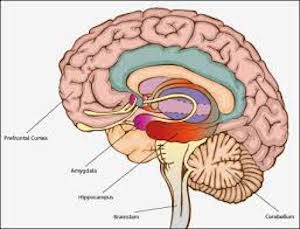It is indisputable – constant stress affects our ability to think clearly, make good decisions, and our memory ability. Research studies also show that chronic stress leads to a higher risk of Alzheimer’s Disease and cognitive decline, as well as to depression.
These days we often find ourselves living under considerable stress, perhaps faced with economic challenges, family tensions, constant availability via cellphones, work pressures, and a constant barrage of bad news, strife and drama beamed right into our living rooms by television and radio. It isn’t the presence of these things but how we react to them that creates the pressure we know as ‘stress’.
As human beings we are well adapted to withstand short-term stress. When a situation or event arises for us, the amygdalae deep within the brain reacts, floods our body with adrenaline and cortisol and we are ready to face the oncoming crisis. This is often called the fight/flight response. Breathing becomes shallow, allowing oxygen into our blood quickly. The heart races, carrying oxygen and fuel to the muscles. We perspire, cooling the body because action is requires. We may experience a queasy feeling as the stomach slows digestion because all energy is directed towards fight or flight. Is this familiar? The adrenaline and cortisol work together to speed the heart rate and increase blood pressure, all very useful if you are fighting to survive. When the danger is over, then everything returns to normal.

In our evolutionary past this worked well. If you were to meet a sabre-toothed tiger then there needed to be an instant decision to fight or run. Whatever your choice it was all over in five minutes. You were either far away, dealt to the sabre-tooth or eaten! This is great for the jungle. It does not serve us so well when we are under constant stress and the body does not have the chance to settle back to normal.
Constantly high adrenaline and cortisol levels can cause blood sugar imbalance and blood pressure problems, and may even affect muscle tissue, immunity to infection and inflammatory responses. Eventually, the formation of new neural connections in the hippocampus, the brain area responsible for making new memories, ceases. When this happens the hippocampus can shrink, hindering memory ability.
 To protect your brain from the long-term damaging effects of stress, it is essential to lower stress levels and build emotional resilience so that you can manage the day to day situations and events that life brings. Building resilience to stress will help you feel in control and perform better on a daily basis.
To protect your brain from the long-term damaging effects of stress, it is essential to lower stress levels and build emotional resilience so that you can manage the day to day situations and events that life brings. Building resilience to stress will help you feel in control and perform better on a daily basis.
How do we build resilience?
Learn to relax. This is not easily accomplished when you feel stretched to breaking point but it is the most important action you can take to counteract stress. Relaxation helps to quieten a busy mind, decreases blood pressure and breathing rate, and generally increases a sense of well-being.
Try the ‘calming technique’. Close your eyes and, in your mind’s eye, see yourself take a step back. Inhale deeply, and as you slowly exhale say to yourself, “calm mind.” Visualise your mind calming and emptying itself of all the busy thoughts. Take another deep breath, and as you slowly exhale, say to yourself ,”relaxed body”, feeling the tension leave your body and running out through your hands and feet.
Think positively. How you think about difficult situations makes all the difference to whether you will become chronically stressed or not. In a study at Harvard University, students were taught that the stress they felt before an exam would actually improve performance. What do you think happened? Yes, compared to students who were not taught stress would help them, the ‘stress’ group achieved consistently higher scores both in the mock and real examinations. Changing the way you look at situations, and taking steps to change the situation where you can, can help you manage stress and build brain resilience.
Stay connected to other people. One of the difficulties when you are stressed is the ease with which social connections just seem to disappear. When you are overburdened just trying to get through each day, personal contacts seem to be the first thing that falls off your over-burdened plate. Make time for friends and family. They can be the best buffer between you and stress and there is plenty of research to show that social engagement is a vital factor in physical and mental health, and for brain and memory to function well.
Go out for a walk. Exercise releases endorphins – the feel good hormones – into the brain. Countless research studies have shown that exercise counteracts the effects of stress and, as a bonus, boosts memory. Exercise also promotes sound sleep, reduces the likelihood of depression, and boosts well-being. It is well worth popping on those walking shoes and finding a park, beach, or interesting route to walk. Or perhaps you prefer swimming, cycling, or a round of golf. Try exercising with friends and enjoy the benefits of staying connected with other people.
Take control of the situation. Being in stressful situations can leave us feeling powerless to do anything about it. Look at the situation from every angle and see if you can change it. If necessary, enlist help. Taking control over situations builds confidence that you can handle anything that comes your way.
Enjoy humour. Enjoying a good laugh does make us feel better. This is because laughter lowers the cortisol and adrenaline levels resulting from stress. Studies have found that even thinking about something funny has a positive effect reducing stress.
We can’t always change the stressful situations in which we find ourselves, but we can learn to manage it.
Dr. Allison Lamont is founder and clinician of the Auckland Memory Clinic. Allison, with her sister Gillian Eadie, created the Memory Foundation to make information about preserving and improving memory available to everyone. We can rewire the brain and sharpen memory at any age. You can try the Foundation’s fun memory games right now on the GrownUps website! Just click right here Memory Foundation Games on Grownups
And you want to keep your brain sharp. Right? And to know how to go about it?
Here is your answer! The popular book 7-Day Brain Boost Plan by Dr. Allison Lamont and Gillian Eadie will show you the way!
By Dr Allison Lamont. Read more here










Atticus - 8 years ago
For stress management using the power of your own mind, Google the Silva Method, or visit http://www.silvamethodnewzealand.com
Cheers
Atticus